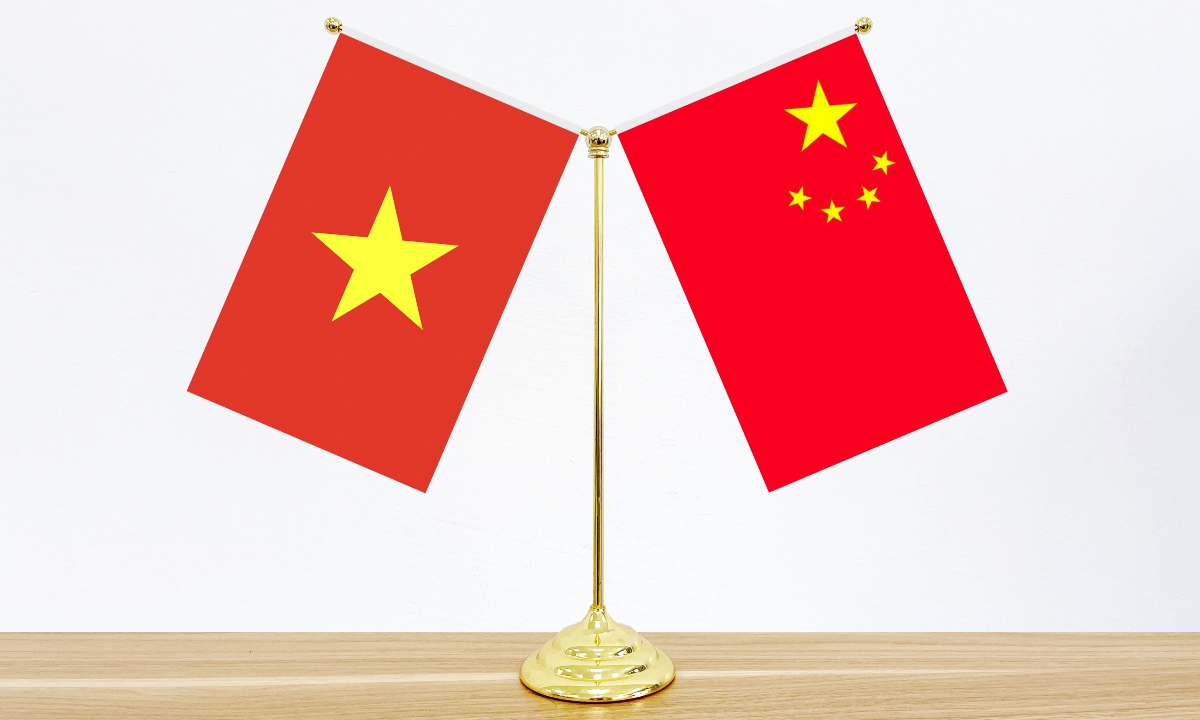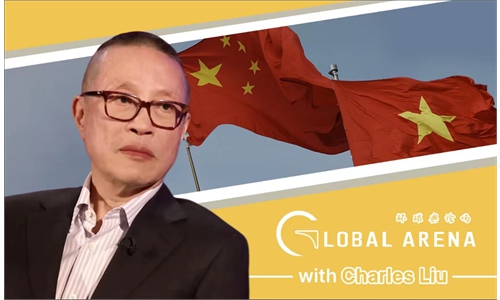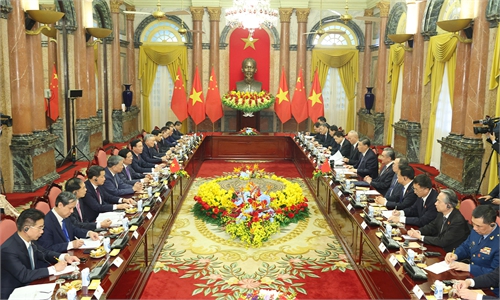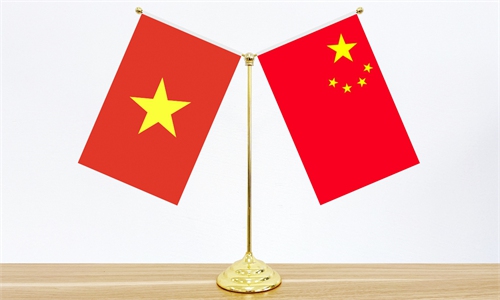
China Vietnam Photo: VCG
During a recent visit to Vietnam, General Secretary of the Communist Party of China (CPC) Central Committee and Chinese President Xi Jinping proposed the construction of a China-Vietnam community with a shared future. The two countries signed 36 cooperation agreements, which are of great historical significance. This deepens the traditional friendship between China and Vietnam as socialist friendly neighbors, paving the way for the development of China-Vietnam relations to a new height.China and Vietnam are connected by mountains and rivers and have a long history of close cultural exchange. They have established common aspirations and brotherly friendship in the process of national liberation.
In November 2015, Xi visited Vietnam for the first time as the head of state and top leader of the CPC. In 2017, President Xi chose Vietnam as the first country to visit after the 19th CPC National Congress, sending a clear signal to the world to promote comprehensive strategic cooperation and jointly promote the development of the socialist cause.
In October 2022, General Secretary of the Communist Party of Vietnam Central Committee Nguyen Phu Trong became the first foreign leader to visit China after the 20th CPC National Congress and China and Vietnam issued a joint statement on further strengthening and deepening the comprehensive strategic cooperative partnership.
Since Trong's visit to China more than a year ago, the consensus reached by the two sides has been fully implemented. Many Vietnamese senior officials have visited China, and there have been frequent exchanges and contacts between the two parties and departments of the two countries that are aimed at seeking governance and development cooperation. China has been Vietnam's largest trading partner for the past 20 years, and investment in Vietnam has gradually increased. People-to-people exchanges and local cooperation have become more active, and defense cooperation has become increasingly close. The new trend of beneficial cooperation and common development between the two countries is taking shape, and there is an urgent need to build a cooperation framework that is long-term and future-oriented.
The successful construction of a community with a shared future between China and Vietnam will contribute to safeguarding the common interests of developing countries, and its momentum will further expand to the region and even the world, injecting stability and positive energy into the world.
Since the beginning of the century, the failure of the US and Western systems has become apparent. Amid the superimposition of many crises such as the COVID-19 pandemic, economic recession and local conflicts, the superiority of the socialist system has been further highlighted. Faced with changes in the world, socialist countries, such as China and Vietnam, are exploring strategies for modernizing Marxism. Vietnam's achievements since its reform and opening-up have attracted worldwide attention, and in recent years, the country has set forth two 100-year goals, aiming to build a modern and developed nation.
With the rise of Vietnam's national strength, it has proposed the major strategic concept of "bamboo diplomacy." Some commentators argued that Vietnam's positioning of improving relations with the US and Japan means that Vietnam has easily been drawn to the side of the US. However, they fail to realize that the "roots" of "bamboo diplomacy" lie in the leadership of the party, and Vietnam has long regarded its neighboring countries as the foundation of its foreign work, with China being the "top priority."
Therefore, the uniqueness of China-Vietnam relations far exceeds the scope of major power geopolitical competition. If President Xi's visit is viewed from the biased perspective of great power rivalry and competition for influence, this view not only underestimates the close ties between China and Vietnam but also Vietnam's proactive ability to safeguard its own interests.
The author is an assistant research fellow of the Institute of South and Southeast Asian and Oceania Studies at the China Institutes of Contemporary International Relations. opinion@globaltimes.com.cn



